The book “Hombres Tradicionales” explores traditional masculinity through Norse mythology, particularly Ragnarok, offering insights into male identity and cultural evolution. It resonates with modern discussions on gender roles.
1.1 Background and Historical Context
The book “Hombres Tradicionales” delves into the roots of traditional masculinity, drawing inspiration from Norse mythology and the epic event of Ragnarok. This mythological framework highlights the struggle between order and chaos, reflecting societal expectations of male roles. Historically, traditional masculinity has been shaped by cultural and mythological narratives, emphasizing strength, resilience, and leadership. The author weaves these themes into a contemporary discussion, exploring how ancient myths influence modern perceptions of masculinity and identity.
1.2 Relevance of the Book in Modern Times
“Hombres Tradicionales” offers a timely exploration of masculinity, blending mythological themes with contemporary issues. In an era of shifting gender roles, the book provides a fresh perspective on traditional male identity. By examining Ragnarok’s symbolism, it addresses modern challenges such as identity crises and societal expectations. This unique approach resonates with readers seeking to understand the evolution of masculinity in a rapidly changing world, making it a compelling read for those interested in gender studies and cultural analysis.
Key Themes in “Hombres Tradicionales”
The book examines traditional masculinity, Ragnarok’s symbolism, and the interconnectedness of cultural identity and personal growth, offering a nuanced exploration of male roles and societal expectations.
2.1 Traditional Masculinity and Its Evolution
The book delves into the transformation of traditional masculinity, tracing its roots in Norse mythology and its evolution through cultural shifts. Ragnarok serves as a metaphor for the cyclical nature of masculine identity, exploring how societal expectations have reshaped male roles. The narrative examines historical definitions of strength and responsibility, contrasting them with modern reinterpretations. This duality highlights the tension between preserving heritage and adapting to contemporary values, offering a nuanced perspective on masculinity’s enduring yet changing landscape.
2.2 The Role of Ragnarok in Shaping Masculine Identity
Ragnarok, the Norse apocalypse, serves as a powerful metaphor in “Hombres Tradicionales”, symbolizing the end of an era and the rebirth of masculine identity. The myths depict heroes embracing their fate, embodying strength and sacrifice. This narrative reshapes traditional masculinity by highlighting resilience and duty. The cyclical nature of Ragnarok mirrors the evolution of male roles, emphasizing that identity is both enduring and adaptable. The book explores how these mythological themes influence modern understandings of masculinity and its transformation.
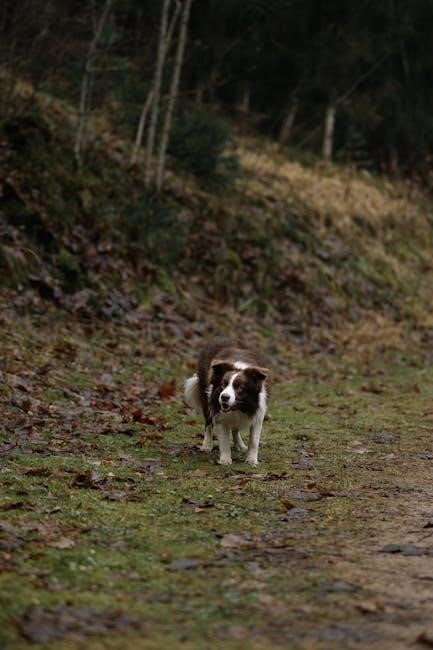
Analysis of Traditional Masculinity
Analyzing traditional masculinity in Hombres Tradicionales reveals its cultural and psychological roots, shaped by societal expectations and the enduring influence of mythological narratives like Ragnarok.
3.1 Cultural and Social Expectations
Cultural and social expectations in Hombres Tradicionales are deeply rooted in traditional masculinity, emphasizing strength, resilience, and leadership. The book draws parallels between Norse mythology, particularly Ragnarok, and modern male roles, highlighting the pressure to conform to societal norms. These expectations often manifest as emotional suppression and the pursuit of dominance, reflecting both the ideals and constraints of traditional masculine identity. The narrative critiques these norms, urging a reevaluation of their relevance in contemporary society.
3.2 Psychological Impact on Modern Men
The book explores how traditional masculine ideals, rooted in Norse mythology, influence modern men’s mental health. The pressure to embody strength and resilience, as depicted in Ragnarok, often leads to emotional suppression and stress. Men may struggle with identity crises, feeling confined by societal expectations. The narrative highlights the need for balance, encouraging men to embrace vulnerability and redefine masculinity in a way that aligns with contemporary values, fostering emotional well-being and authenticity.
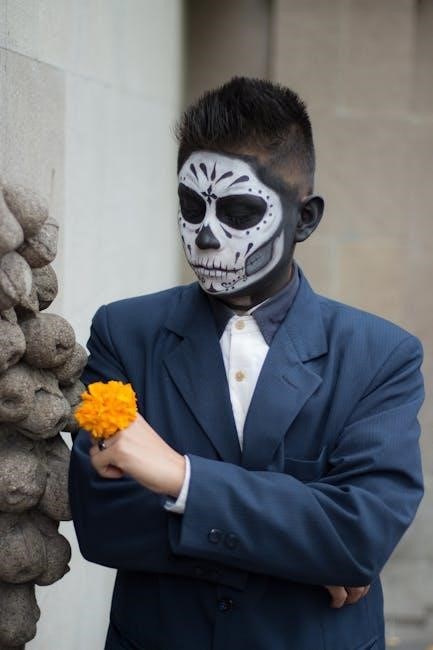
The Role of Ragnarok in the Book
Ragnarok serves as a central theme, symbolizing the end of traditional masculine ideals and the need for rebirth, reflecting the book’s exploration of identity and tradition.
4.1 Mythological Significance of Ragnarok
Ragnarok, from Norse mythology, symbolizes the end of the world and the gods, embodying themes of destruction and rebirth. It reflects the cyclical nature of time and the inevitability of change. In “Hombres Tradicionales”, Ragnarok is used to explore the decline of traditional masculine ideals and the potential for renewal. The myth serves as a metaphor for the struggle between order and chaos, resonating with contemporary discussions on identity and societal transformation.
4.2 Symbolism and Metaphors in the Narrative
In “Hombres Tradicionales”, Ragnarok is richly symbolic, representing the collapse of traditional masculine structures. The fiery demise of Muspelheim and the rebirth from ashes mirror the transformation of modern masculinity. Fenrir, the wolf, symbolizes unchecked primal instincts, while Odin’s sacrificing his eye embodies the cost of wisdom. These metaphors illustrate the tension between preserving heritage and embracing change, offering a profound reflection on identity and societal expectations in contemporary times.
Personal Development and Growth
“Hombres Tradicionales” uses Ragnarok’s symbolism to explore personal transformation; The destruction and rebirth of worlds mirror individual growth, urging men to embrace change while honoring timeless values.
5.1 Overcoming Modern Challenges
“Hombres Tradicionales” offers insights into navigating contemporary societal pressures. By drawing parallels between Ragnarok’s chaos and modern challenges, the book encourages resilience and adaptability. It emphasizes embracing traditional values while fostering personal growth, providing men with practical strategies to thrive amidst cultural shifts and identity crises. The narrative bridges the gap between ancient myths and modern realities, helping readers find balance in a rapidly changing world.
5.2 Embracing Traditional Values in a Contemporary World
“Hombres Tradicionales” highlights the importance of preserving traditional values in a modern context; By weaving Ragnarok’s themes of resilience and honor, the book advocates for a balanced approach to masculinity. It encourages men to embrace their heritage while adapting to contemporary societal expectations. Practical strategies are offered to harmonize ancient principles with modern life, fostering a sense of purpose and identity; This approach helps bridge the gap between tradition and progress, promoting a holistic understanding of masculinity.
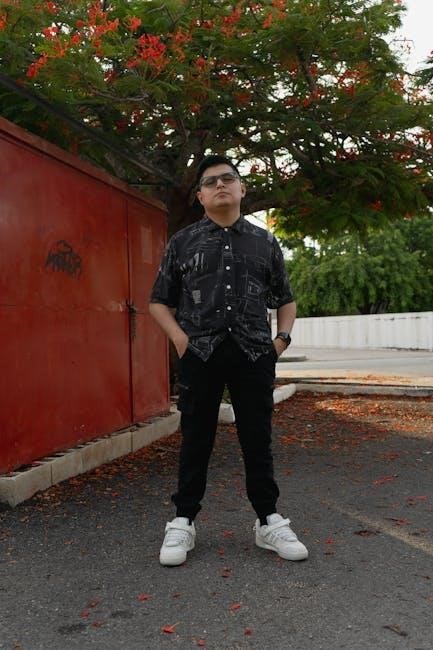
Cultural and Historical Significance
“Hombres Tradicionales” delves into the cultural roots of traditional masculinity, drawing parallels with Norse mythology and Ragnarok. It bridges historical narratives with contemporary relevance, enriching gender studies.
6.1 The Book’s Contribution to Gender Studies
“Hombres Tradicionales” offers a unique perspective on traditional masculinity, blending Norse mythology with contemporary identity. By examining Ragnarok’s symbolism, it challenges and enriches modern gender discourse, providing valuable insights into the evolution of male roles and cultural expectations. This approach not only contributes to academic discussions but also invites readers to reflect on the interplay between history and modern gender dynamics, making it a significant addition to gender studies literature.
6.2 Comparative Analysis with Other Literary Works
“Hombres Tradicionales” shares thematic parallels with works like The Road and Beowulf, exploring masculinity and survival. Unlike these, it uniquely blends Norse mythology with modern identity, offering a fresh lens on gender roles. While The Road focuses on paternal bonds, Hombres Tradicionales delves into cultural heritage, making it a distinctive voice in literature. Its approach to masculinity through Ragnarok sets it apart, enriching the discourse on gender and tradition in contemporary narratives.
Author’s Perspective and Intentions
The author explores traditional masculinity through Ragnarok, blending Norse mythology with modern identity. His vision emphasizes cultural heritage and masculinity’s evolution, offering a unique, thought-provoking narrative.
7.1 The Vision Behind “Hombres Tradicionales”
The author’s vision in “Hombres Tradicionales” is to bridge ancient Norse mythology with contemporary masculinity. By using Ragnarok as a metaphor, he examines the decline and rebirth of traditional male roles, emphasizing resilience and cultural identity. This approach creates a compelling narrative that invites readers to reflect on their own values and the evolving definition of masculinity in modern society.
7.2 The Author’s Approach to Masculinity
The author approaches masculinity by blending Norse mythology with modern societal challenges. Using Ragnarok as a framework, he explores traditional masculine archetypes, emphasizing strength, honor, and resilience. The book challenges contemporary perspectives by advocating for a balanced approach, where ancient values coexist with evolving gender roles. This unique narrative encourages readers to reflect on their identities and the cultural expectations shaping masculinity today.

Audience Reception and Reviews
Readers praise “Hombres Tradicionales” for its unique blend of Norse mythology and modern masculinity. Critics highlight its cultural insights, while some find the narrative emotionally resonant and thought-provoking.
8.1 Reader Feedback and Criticisms
Readers of “Hombres Tradicionales” have shared mixed reactions. Many praise its unique exploration of masculinity and Ragnarok’s symbolism, calling it thought-provoking. However, some critics argue the narrative could delve deeper into character development. A few readers find the blending of mythology and modern themes innovative, while others feel the pacing could be improved. Overall, the book sparks lively discussions, reflecting its ability to resonate with diverse audiences and provoke reflection on traditional gender roles.
8.2 The Book’s Impact on Different Demographics
“Hombres Tradicionales” has resonated with diverse audiences, particularly younger readers drawn to its exploration of masculinity and mythology. Academic circles appreciate its fresh perspective on gender roles, while fans of Norse mythology find its use of Ragnarok compelling. The book has also sparked discussions among feminists and traditionalists, highlighting its ability to bridge cultural and ideological divides. Its universal themes make it accessible to a wide demographic, fostering reflection on identity and tradition in modern society.
Availability and Access
“Hombres Tradicionales” is widely available in digital formats, including PDF, through platforms like Amazon and Google Books. Its accessibility has made it a popular choice for global readers.
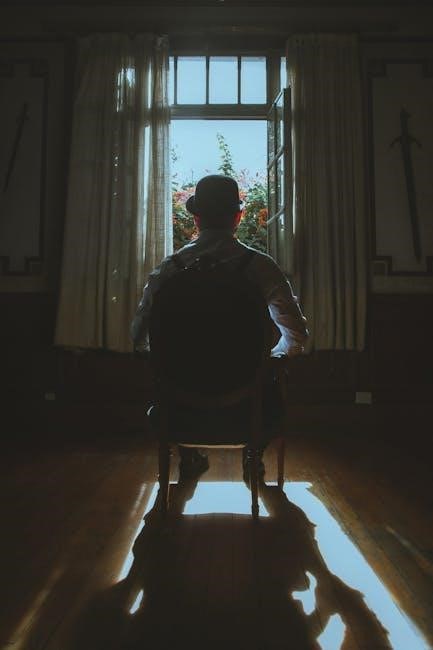
9.1 PDF Versions and Digital Distribution
The book “Hombres Tradicionales” is readily available in PDF format, making it accessible to readers worldwide. Digital platforms like Amazon, Google Books, and other online retailers offer the PDF version for easy download. This format ensures compatibility with various devices, including smartphones, tablets, and e-readers. The digital distribution has simplified access, allowing readers to engage with the text without the need for physical copies. This convenience has contributed to the book’s growing popularity and reach in contemporary times.
9.2 Challenges in Accessing the Book
Despite its digital availability, accessing “Hombres Tradicionales” can be challenging due to regional restrictions and limited free PDF versions. Some readers face issues with purchase requirements or language barriers. Additionally, certain platforms may not offer the book in specific regions, limiting accessibility. These challenges highlight the need for broader distribution strategies to ensure the book reaches its global audience effectively.
“Hombres Tradicionales” offers a profound exploration of traditional masculinity and Ragnarok’s symbolism, providing insights into male identity and cultural evolution. Its thought-provoking narrative remains highly relevant today.
10.1 Summary of Key Takeaways
“Hombres Tradicionales” delves into the essence of traditional masculinity, intertwining it with Norse mythology, particularly Ragnarok. It examines cultural expectations, psychological impacts, and the quest for identity. The book highlights the evolution of masculine roles and the relevance of ancient myths in modern society. By blending mythological symbolism with contemporary issues, it offers a unique perspective on personal growth and the embrace of traditional values in a changing world, making it a thought-provoking read for those exploring gender and identity.
10.2 Final Thoughts on the Book’s Importance
“Hombres Tradicionales” stands out as a compelling exploration of masculinity and cultural identity. By weaving Ragnarok’s mythological significance into contemporary discourse, it offers a unique lens for understanding traditional values in modern society. The book’s accessibility, including its PDF version, ensures its ideas reach a wide audience. Its thought-provoking narrative makes it a valuable resource for those interested in gender studies, mythology, and personal development, leaving a lasting impact on readers from diverse backgrounds.
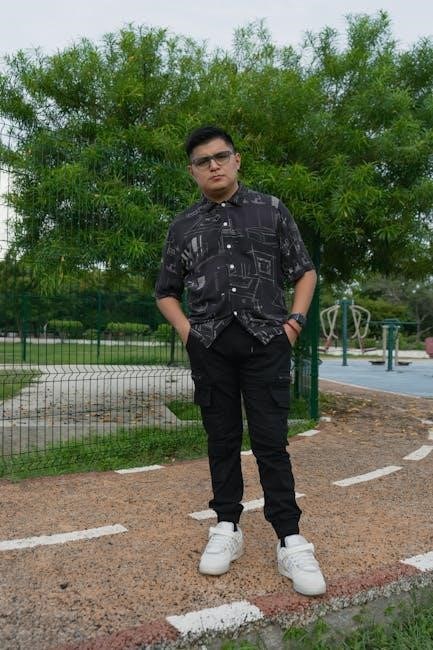
Additional Resources
For deeper exploration, the PDF version of “Hombres Tradicionales” is widely available online. Join forums like Norse Mythology Enthusiasts or Modern Masculinity Discussions for insights and debates;
11.1 Recommended Reading for Further Exploration
For deeper insights, explore “The Masks of Masculinity” by Lewis Howes and “Norse Mythology” by Neil Gaiman. These works complement “Hombres Tradicionales” by offering diverse perspectives on masculinity, cultural identity, and mythological symbolism. Academic studies like “Gender Roles in Modern Society” also provide a sociological context, enriching your understanding of the themes presented in the book. These resources are available in PDF formats and online forums dedicated to gender studies and Norse mythology.
11.2 Online Communities and Discussions
Online forums and social media groups dedicated to “Hombres Tradicionales” and Norse mythology offer vibrant discussions. Platforms like Reddit and Goodreads host debates on traditional masculinity and Ragnarok’s symbolism. Users share personal insights, analyses, and recommendations for further reading. These communities provide a space for diverse perspectives and foster deeper understanding of the book’s themes. Engaging with these discussions can enhance your appreciation of the interplay between mythology and modern masculinity.